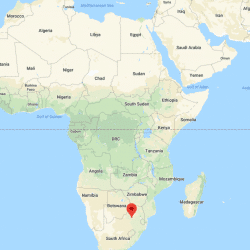Context
In South Africa, the education system faces major challenges. Persistent problems related to school quality in much of the education system limit the ability to lift poor children out of poverty.
These children often attend schools characterized by a lack of discipline, weak management and equally weak teaching. Verbal abuse by teachers is also a growing problem.
The majority of students still live in the extreme conditions of the expanding townships and the level of education varies from region to region and from school to school. Many children attending schools in the townships come from extremely vulnerable and poor families who cannot afford to pay school fees. As a result, the school receives less funding and education suffers.
Many children do not finish school
Schooling is compulsory for children between the ages of 7 and 15. However, it has been noted that many children drop out of school without completing grades 11 and 12. A survey showed that the four main reasons for dropping out are: lack of family resources, the need to find a job to support families, failure at school and early pregnancies.
Despite 20 years of democratic rule, the reality is that most black children, especially in the townships, continue to receive a poor quality education – condemning them to stagnate in the lower class of South African society where poverty and unemployment are the norm. Indeed, a poor-quality education denies young people access to a dignified future and negatively affects their self-esteem.
Our action
Coordination and implementation: FXB International
Financial partners: J&K Wonderland Foundation, Alstom Foundation, Air France Foundation, Greendale Foundation, LIFSA, Madeleine Fondation, Vajra Fondation, Pomena Enfance, Canton of Aargau
FXB runs several after-school education and life skills development programs in slums around Johannesburg and Witbank. These communities are characterized by high rates of unemployment, crime, violence, and HIV infection. Many of the children who we support are orphans. Our programs aim to limit the consequences of HIV/AIDS and poverty in the lives of our young participants, ease their moral distress, enable them to better cope with daily life, and open up more promising prospects in the future.
The strength of our approach : Developing academic capability as well as crucial psychosocial and interpersonal skills of young people
Beyond educational and nutritional support, considerable work is being undertaken to encourage the development of essential psychosocial and interpersonal skills. These skills will help our young people to become resilient adults and full members of society.
Topics such as sexual and reproductive health education, prevention of HIV/AIDS, sexual abuse and violence, respect for self and others, citizenship, children’s rights, leadership learning, and financial planning are addressed and worked on with them throughout the sessions. Our teams also help these young people to find vocational training or to enter higher education.
Our ambition is also to generate behavioral change in communities through children and young people. As a result, and to ensure the sustainability of the impact, FXB Youth Clubs made up of former participants are set up. FXB motivates them to become involved in the programs by becoming peer educators. They are also encouraged to take an active role in their communities and to help others through, for example, visits to orphanages, retirement homes, hospices or centers for the disabled.


